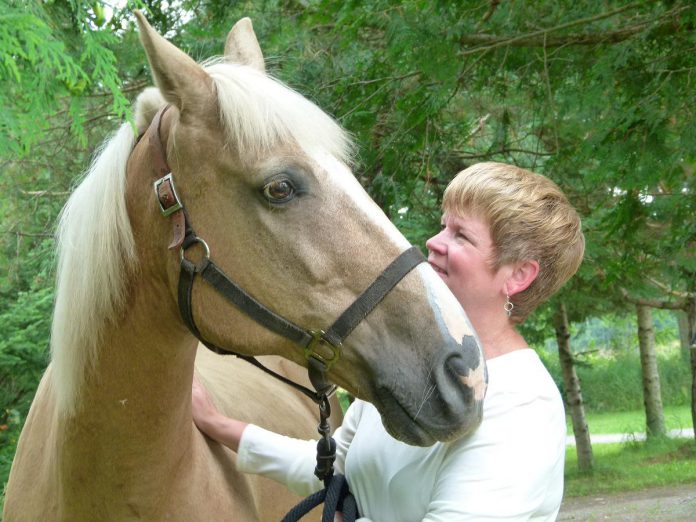
At 48 years old, Jennifer Garland met a horse who completely changed the direction of her life. Today, 10 years after launching her own equine-assisted learning facility because of that horse, she continues to show clients how the perceptive animals can change their lives too.
A Registered Psychotherapist, Garland offers individual trauma-informed virtual, on site, and equine-assisted psychotherapy through The Mane Intent, located in Indian River just 15 minutes east of Peterborough.
The Mane Intent also supports community-based equine-assisted therapy for groups, servicing people living with trauma, depression, anxiety, chronic stress, addictions, and other focus areas.
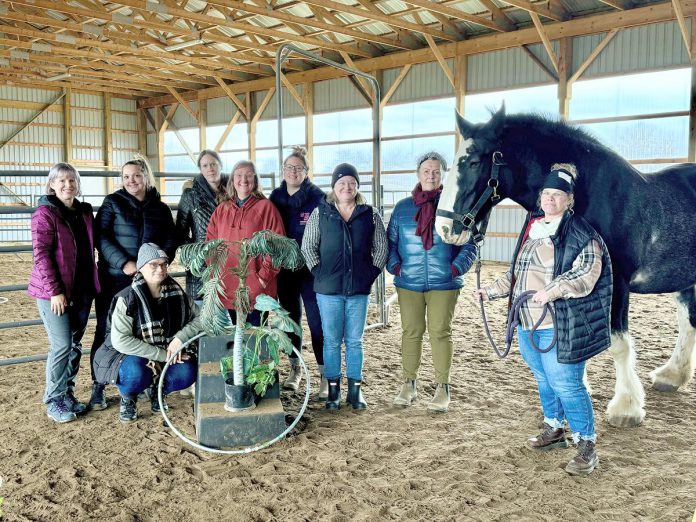
“There is a moment in time when a human is working with a horse — often a moment of surprise because the horse will do something unexpected and appropriate — that is just magical,” says Garland. “In that moment there is an opening, and that opening is where healing occurs.”
Given that today her day-to-day tasks include helping people during the most vulnerable moments in their lives and cleaning out horse stables, it’s hard to imagine that just over a decade ago, Garland was working in corporate communications in Toronto.
But in 2011, shortly after moving to her Indian River farm, she decided to get a horse, and that’s when she met Sunny (later named Sunny with a Chance of Tornado). Still commuting to the GTA at the time, she noticed how much her work and lifestyle were affecting her time with Sunny and vice versa.
“My experience with Sunny was defined by how my own internal state was and that evoked a curiosity in me,” she says. “That was the beginning of this incredible relationship with Sunny. He knew when to hold space, and he knew when to push a little. He was a really great therapy horse.”
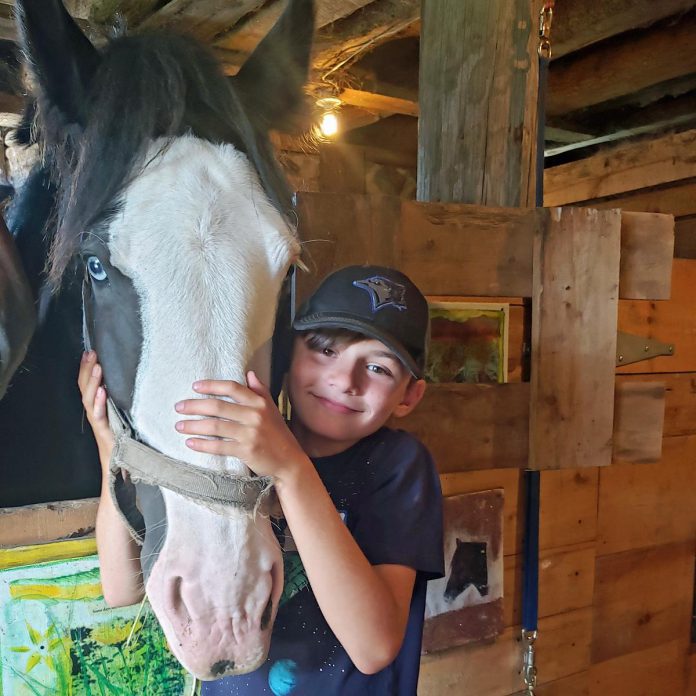
Though Garland initially intended The Mane Intent to support her professional background in leadership and team building, she instead found another calling and has since earned a Master of Arts in Counselling Psychology, alongside a number of other focused certifications.
“Working with horses in a therapeutic way, or in a professional development way, offers us a number of benefits that we don’t necessarily get when we’re working with other humans,” she says. “Horses are empathetic, intuitive, sentient beings. They experience emotions just as we do.”
Garland explains that working with horses promotes healthy relationships and emotional regulation — something that children and youth in particular often struggle with, although it can also be an obstacle for adults as well.
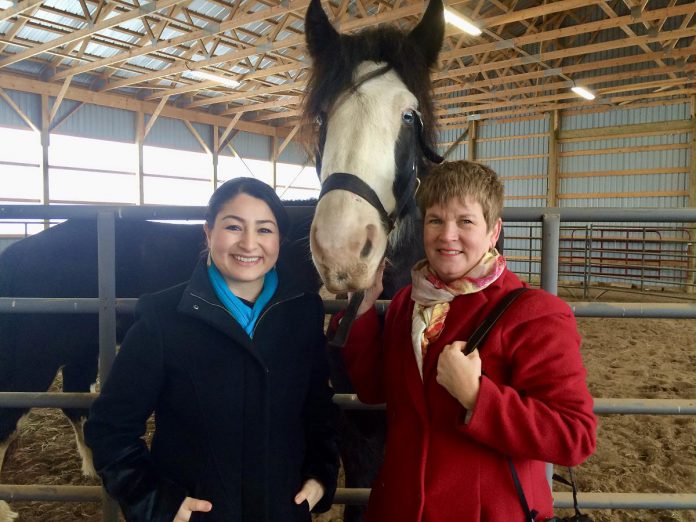
“Horses are highly sensitive to our emotions, and they will often mirror the emotional state of those they are working with,” she says. “If you’ve had a traumatic experience, often you’re living in a world that doesn’t feel safe and where you’re always in a hyper-vigilant state. Often clients leave feeling a sense of calm, which is a strange feeling for them.”
While this sense of ease largely comes from The Mane Intent’s herd of nine calming horses, it’s also encouraged by the nurturing environment of the farm property itself. A delicate combination of old and new, the farm was first settled in 1846 with the home built in the 1880s, while Garland recently converted an old school portable into the property’s workshop space.
“The actual environment in which therapy occurs is very important,” Garland points out. “This is an environment that is safe, quiet, and surrounded by nature. The horses are in their element here as well.”
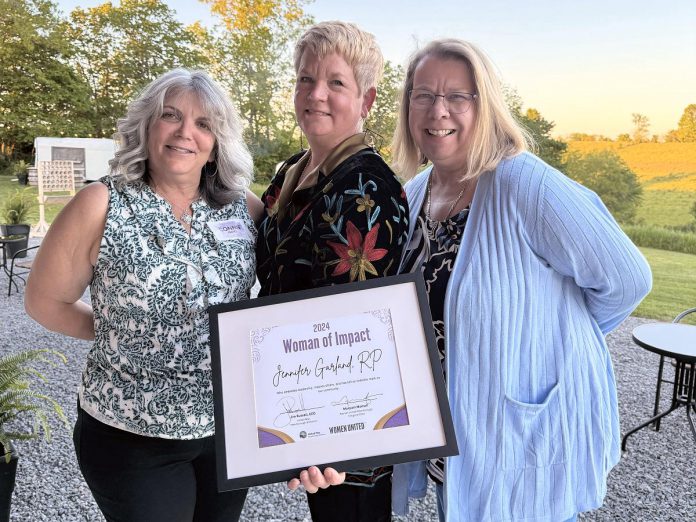
Equine-assisted psychotherapy also assists with building self-confidence, self-esteem, and trust. Some of Garland’s clients will come in with a fear of horses, either because of past experiences or because they are intimidated by their size.
“Through consistent and compassionate interaction with horses, clients can work on building trust in themselves and in others. Horses don’t judge us. They live in the moment, so clients can feel accepted.”
Garland says a common exercise with her clients involves setting a goal and placing stations in the arena that represent the obstacles or barriers. According to Garland, such activity “helps participants experience a sense of accomplishment and helps boost confidence.”
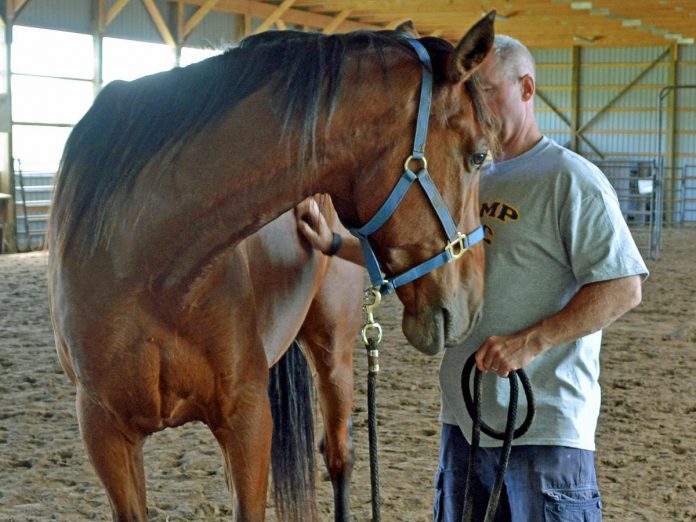
Each of the horses at The Mane Intent have something unique to teach participants. One horse that Garland describes as having “no filter” can help her assess how a participant responds to rejection or hearing “no.” Since it is only communicated through non-verbal cues, these interactions can help build social cues and teach neurodivergent children how to read body language.
“We’re in a world where we’re always moving, always thinking, and always doing, so horses provide a really wonderful opportunity for us to practice self-compassion and mindfulness,” Garland says. “They live entirely in the present moment, and we have to be present when we’re working or interacting with a horse. That really gives us that opportunity to let go of what’s happening in our head and be in a place of heart.”
In 2015, Garland supported over 300 veterans, many of whom were men, in an addictions and PTSD treatment program. More recently, beginning in 2016, The Mane Intent collaborated with the Kawartha Sexual Assault Centre and Trent University to develop and deliver “Building Internal Resilience Through Horses,” a five-year innovative trauma- and violence-informed resilience program for female youth who had experienced intimate partner violence or witnessed violence in their home.
Since then, The Mane Intent has also designed and delivered multi-week customized equine-supported wellness programming for various social service agencies and organizations.
“The added benefit with groups is that you’re working with others, so it helps clients who sometimes feel isolated feel more connected to others,” says Garland. “Hearing the shared experiences of others can really enhance our social skills and give us a greater sense of belonging.”
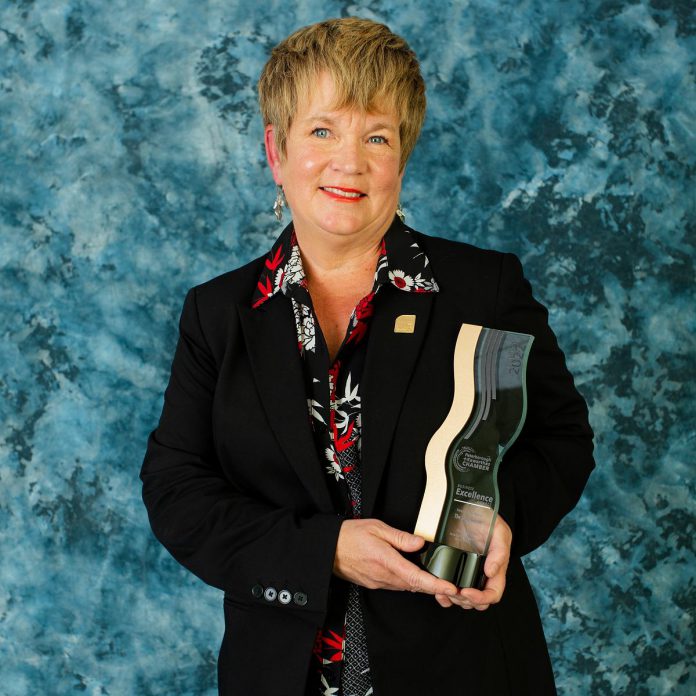
Treatments at The Mane Intent can be very much personalized and gradual, with intake sessions to help determine next steps. Garland likens the process to that taken with clients who are initially afraid of horses. Gradually, she’ll start them off meeting the herd, and “just notice what comes up.”
“The first visit to the farm for me is an intake where I will gather the story and understand the participant’s needs,” she says. “That’s where we start noticing which horses you’re drawn to and which horses maybe you’re not drawn to. Some clients will work with one horse, some clients will ask me to pick the horse, and some clients will work with a variety of horses.”
Although Garland was “devastated” when her own life-changing horse unexpectedly passed away in December of 2023, Sunny will always hold a special place in her heart.
“Sunny was the champion — he was my change maker,” she says. “Everybody at some point in time meets someone or something that changes things, and he was that herd horse for me.”
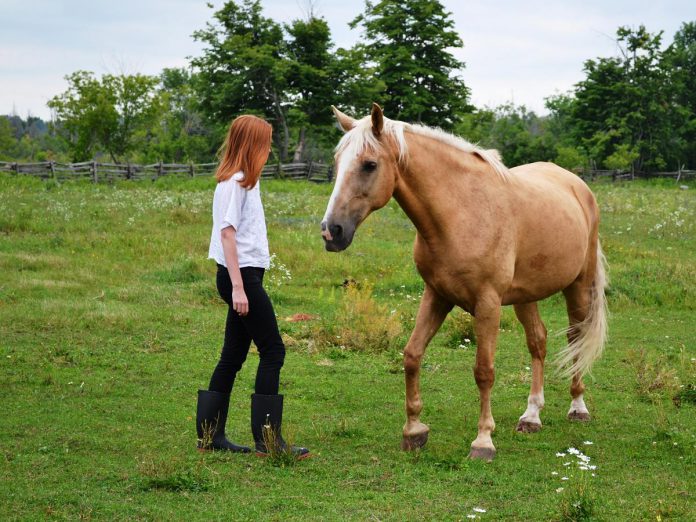
With her award-winning business now celebrating its 10-year anniversary, Garland remains committed to continuing the work Sunny inspired her to do, and is accepting new clients with no referral required.
“This is not what I thought I would be doing, but it’s what I’m meant to do,” Garland says, reflecting on the past decade. “I’ve had so many moments of magic and want to see a lot more.”
For more information on The Mane Intent or to book a consultation, visit themaneintent.ca.
This branded editorial was created in partnership with The Mane Intent. If your business or organization is interested in a branded editorial, contact us.


























